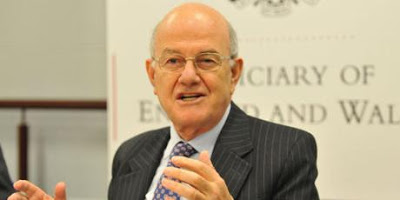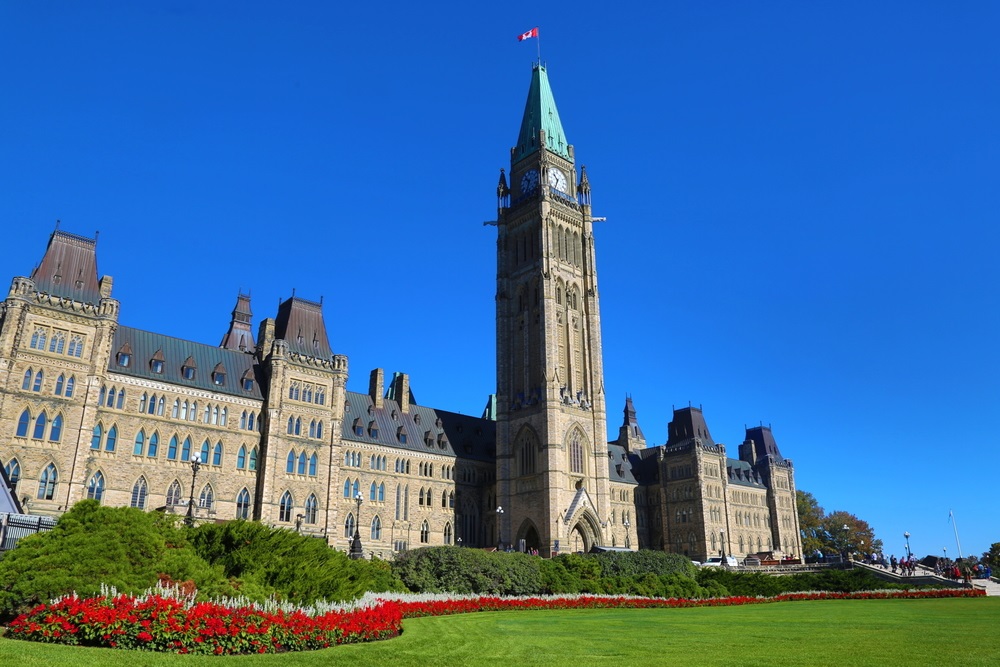Weekly Notes: legal news from ICLR — 8 May 2017
This week’s roundup of legal news and comment comes from Ottawa where team ICLR are attending the Canadian Association of Law Libraries annual conference. And no, we’re not doing all of it in both French and English, fun though that might be (and a suitable test of the editor’s schoolboy French). ICLR in Ottawa Welcome to… Continue reading
This week’s roundup of legal news and comment comes from Ottawa where team ICLR are attending the Canadian Association of Law Libraries annual conference. And no, we’re not doing all of it in both French and English, fun though that might be (and a suitable test of the editor’s schoolboy French).
ICLR in Ottawa
Welcome to the 55th annual Canadian Association of Law Libraries Conference! / Bienvenue au 55e Congrès annuel de l’Association canadienne des bibliothèques de droit!
Representing ICLR at the conference are Paul Hastings, Account Manager, and Paul Magrath, Head of Product Development and Online Content. They will be demonstrating ICLR Online to potential new users, and discussing with existing users the forthcoming seismic upgrade, ICLR.3
For more about this, see our conference diary.
Meanwhile, back in the UK…
Legislation
Risk of inadequate parliamentary scrutiny
 Brexit, the Great Repeal Bill which it necessitates, and the increasing reliance on secondary legislation and “Henry VIII powers” pose a serious risk to the constitutional function of parliament in scrutinising new legislation, warned the former Lord Chief Justice, Lord Judge, in a speech to the Bingham Centre for the Rule of Law last week. Giving the Annual Bingham Lecture on 3 May 2017, under the title ‘A Judge’s View of the Rule of Law’, he said that
Brexit, the Great Repeal Bill which it necessitates, and the increasing reliance on secondary legislation and “Henry VIII powers” pose a serious risk to the constitutional function of parliament in scrutinising new legislation, warned the former Lord Chief Justice, Lord Judge, in a speech to the Bingham Centre for the Rule of Law last week. Giving the Annual Bingham Lecture on 3 May 2017, under the title ‘A Judge’s View of the Rule of Law’, he said that
‘by the time the Brexit process has finished its Parliamentary journey, we shall have irremediably cemented law-making by unscrutinised legislation into our constitutional arrangements’.
This was the aspect of the speech that got the most coverage in the press (see, eg, Owen Bowcott’s piece in the Guardian: Brexit may cost MPs and peers the power to pass laws, says former judge. But it is worth reading the speech in full because there’s much more to it than that. Among other things, he takes parliament to task for some of the failures properly to scrutinise existing legislation when it was passed, pointing out examples of provisions which are not making or defining law at all, but merely flagging up (and purporting to give legislative effect to) what are really just constitutional conventions; or ‘skeleton bills’ that say very little and are designed to be fleshed out with a lot of delegated or secondary legislation; and something called a ‘Christmas tree bill’ which is
festooned with multiple miscellaneous, potentially controversial provisions, with no apparent connection with the title of the Bill. Included in a bundle like this, they can escape scrutiny in the Commons.
Another serious constitutional problem Lord Judge touched upon was the change in the role of the Lord Chancellor, which has meant:
There is no member of the Cabinet who has had any specialist experience or practical understanding of the constitution which the Lord Chancellor in his former role brought to the table.
But ultimately it is the want of proper scrutiny which is the most serious issue.
The three words “sovereignty of Parliament” should be no more of an incantation, conned and learned by rote”, than the other three words, “rule of law”.
- Read the full full transcript of Lord Judge’s speech.
- Read the response of Dame Sian Elias, Patron of the Bingham Centre and Chief Justice of New Zealand.
Media law
Digital Economy Act 2017
On the assumption that the Digital Economy Bill’s enactment in the wash-up before dissolution of Parliament substantially replicates what was in the bill, Anya Proops QC on the Panopticon Blog identifies three main areas of concern to privacy lawyers:
- it embodies a number of provisions designed to liberalise Government data sharing
- it contains a provision of considerable importance in the context of direct marketing
- imposes an obligation on commercial online pornography providers (“OPPs”) to ensure that the pornographic material which they make available to users is ‘not normally accessible to persons under the age of 18.
The bill was the subject of a report from the House of Lords Constitution Committee in January which concluded, inter alia, that it ‘requires more detail of online pornography age verification plan’. Since then it has been debated, most recently on 27 April (see Hansard) shortly before it received the royal assent.
The porn-bar and other issues are discussed in an explainer by Jamie Rigg on Endgadget, How the Digital Economy Act will come between you and porn.
Practice: consultation
Following his recent appointment as judge in charge of the new Queen’s Bench “Media and Communications List”, Mr Justice Warby is consulting practitioners and other court users in the media and communications field on a small number of procedural questions. For more details, see Inforrm’s blogwith link to relevant form.
Family law
Judicial Cooperation with Serious Case Reviews
The President of the Family Division, Sir James Munby issued new guidance on 2 May on the participation of judges in serious case reviews. The essential point he makes is the need to preserve judicial independence, so that while judges may assist the SCR with information acquired in their judicial capacity, they should not themselves be dragged into a situation where their judicial conduct is subject to a multi-agency review process. The proper way to review their decision is by way of appeal to a higher court, says Sir James.
- Read the President’s Guidance.
- For some mildly critical commentary, see family law barrister Lucy Reed on her Pink Tape blog
Dates and deadlines
Access to Justice After the Election: Panel Debate
6:30pm on Wednesday 10 May at Garden Court Chambers, London. Ahead of the general election on 8 June 2017, Young Legal Aid Lawyers (YLAL) is delighted to present a pre-election panel debate on access to justice and legal aid, featuring speakers from each of the main political parties. Details / Eventbrite
ART SALON: THE LAW
With Jacqueline Nicholls, Frances Fyfield, Isobel Williams and Hubert Best. How does art depict the legal process? Tickets: £12.00. London Jewish Cultural Centre, Tue 23 May 8:00pm
English-Polish Law Day
Current bilateral issues in Criminal and family law. Bar Council training event. Opportunity for family and criminal barristers to participate in a UK-Polish seminar.
Monday 15 May 2017, Warsaw. To register to attend the seminar, please email the Training and Events team by the 10 May 2017.
Some recent reads
- Penelope Gibbs, Transform Justice blog: Do suspended sentences work better than community sentences?
- Young Legal Aid Lawyers (see event above): Legal Aid News April 2017
- Obiter J’s Law and Lawyers blog: Those unavoidable international courts
Law (and injustice) from around the world
France
Macron wins
The presidential elections (second round) took place on Sunday 7 May and by mid afternoon in Ottawa we had heard that Macron had won. That seems good news, or at any rate one fewer nail in the global coffin. Vive la France!
Ireland
Blasphemy law to be used for first time?
Some people believe in it, and are deeply offended when others make fun of it. But now that it has been proved to exist, Ireland’s blasphemy law may finally be actually used. Or not, as the case may turn out.
The BBC reports that the actor and TV presenter Stephen Fry is the subject of an investigation by the Irish police following a singular complaint by a member of the public that remarks made by Fry on RTE, the Irish broadcaster, in 2015, contravened the Irish law of blasphemy. According to Independent.iea member of the public reported the allegation to Ennis garda Station following a broadcast of ‘The Meaning of Life’, hosted by Gay Byrne, in February 2015. The member of the public, who did not wish to be identified, said he had not been offended by Fry’s remarks:
“I told the Garda that I did not want to include this as I had not personally been offended by Fry’s comments — I added that I simply believed that the comments made by Fry on RTÉ were criminal blasphemy and that I was doing my civic duty by reporting a crime.”
Indeed. If this sounds like a character from the pages of Flann O’Brien, it is tempting to wonder what he would have made of this absurdity, or even Myles na Gopaleen, were he still with us.
The law in question is a criminal offence created under s 36 of the Defamation Act 2009:
(1) A person who publishes or utters blasphemous matter shall be guilty of an offence and shall be liable upon conviction on indictment to a fine not exceeding €25,000.
(2) For the purposes of this section, a person publishes or utters blasphemous matter if- (a) he or she publishes or utters matter that is grossly abusive or insulting in relation to matters held sacred by any religion, thereby causing outrage among a substantial number of the adherents of that religion, and (b) he or she intends, by the publication or utterance of the matter concerned, to cause such outrage.
It seems odd for a western democracy to have legislated in recent years to create, or expand the scope of, a somewhat medieval seeming law, but no doubt the matter was very fully debated at the time.
Tweet of the Week…
comes from Channel 4 news presenter Krishnan Guru-Murthy:
Confirmed – it IS Banksy who has been hard at work in Dover chipping away at Brexit pic.twitter.com/uNKeJZtpqd
— Krishnan Guru-Murthy (@krishgm) May 7, 2017
If there’s a picture credit for the photograph, we assume it belongs to Krishnan; who in turn identifies the creditee (?) of the underlying art work. Incidentally, retweeting of this image set off a discussion about the number of stars. See also this short film about it, from Channel 4.
That’s it for now. (We’ll have some more overseas news next time, hopefully.) Our thanks to all who flagged up stories, via their blogs (which we always try to acknowledge) and via Twitter (where useful tweets are retweeted).
This post was written by Paul Magrath, Head of Product Development and Online Content at ICLR, who also tweets as @maggotlaw. It does not necessarily represent the opinions of ICLR as an organisation. Comments welcome on Twitter @TheICLR.
Sign up now for weekly email alerts from this blog. Just put your email address into the box on the left.
